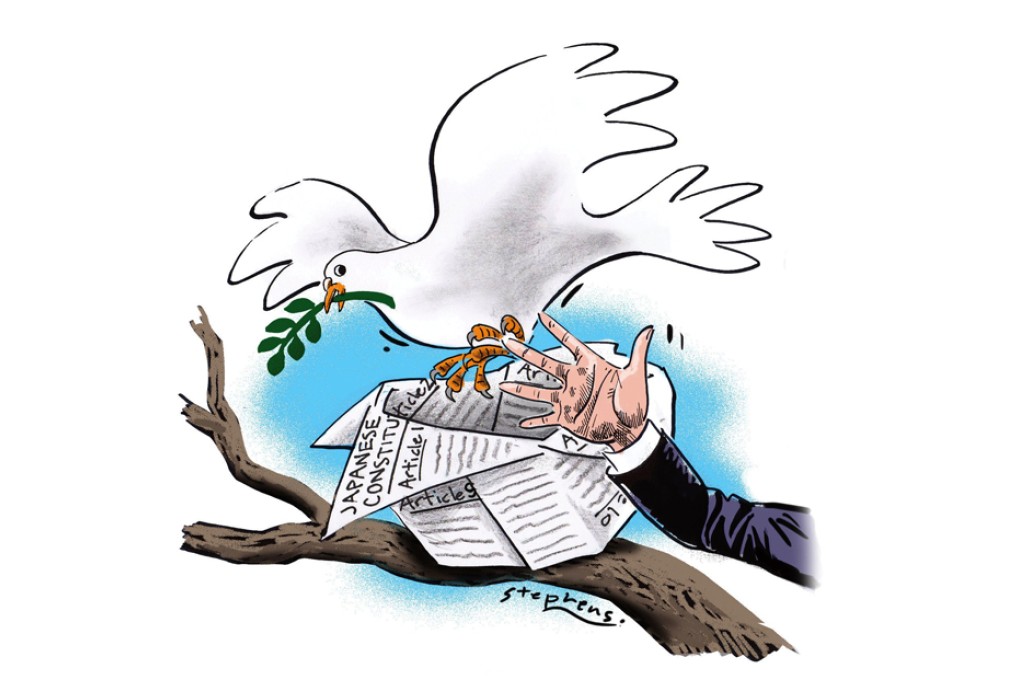The perils of Japan's bid to reinterpret its 'peace' constitution
Peter Drysdale says changing the peace clause of Japan's constitution, as the Abe government proposes, may be stretching it to breaking point, and doesn't appear to be backed by a wary public

The debate on the reinterpretation of the Japanese constitution is looming to be the single most consequential security-related debate in Tokyo since the US-Japan Security Treaty debate in 1960.
Japanese Prime Minister Shinzo Abe has compounded matters by choosing a "panel of experts" on security issues that is heavy on national security expertise but light on the constitutional implications of what it proposes. As a result, the panel's report, released in Tokyo recently, has left many Japanese constitutional experts aghast at the constitutional imbroglio engineered by the security experts to justify a reinterpretation of Article 9 (the "peace" clause).
Of particular concern is the logical tautology that Japan can reinterpret the constitution to allow for a broad-scoped exercise of the right to collective self-defence because it falls within the minimum necessary level of self-defence that is permissible under Article 9.
While Japan has been fitfully moving towards a more "normal" defence identity since the end of the cold war, in the 1990s that was accompanied by its breaking new ground on admitting to and apologising for wartime aggression. Today, unfortunately, that context is lacking, significantly because of Abe's psychological instinct to give rein to revisionism on wartime transgressions, greatly upsetting China and South Korea as well as the US and others. While US pressure on the Abe administration has brought the more outrageous expressions of revisionism into check, things have clearly gone backwards.
Recent opinion polls suggest a public that is very cautious when it comes to constitutional change. While many are undecided, support rates for and against changing the constitution are fairly evenly matched. But on the specific question of amending Article 9, many do not want any messing with the peace clause. This is in contrast to polling a year earlier while Abe was riding his Abenomics honeymoon.
Still, many thoughtful people in the policy community are aware of the legal inconsistencies in the status quo.